Publications
Articles, publications, books, tools and multimedia features from the U.S. Institute of Peace provide the latest news, analysis, research findings, practitioner guides and reports, all related to the conflict zones and issues that are at the center of the Institute’s work to prevent and reduce violent conflict.
Question And Answer
Blinken’s China Trip Shows Both Sides Want to Stabilize Ties
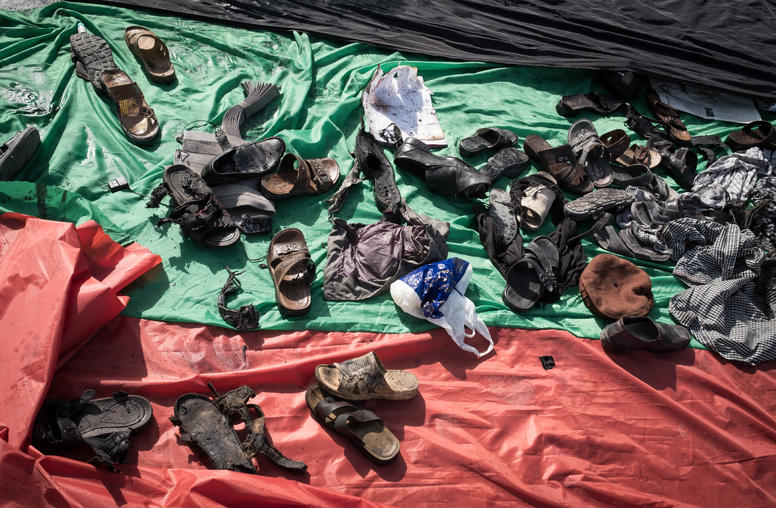
South Asia: Rising Extremism Opens Way for ISIS
Across South Asia, complex strains of extremism are opening the way for the Islamic State and destabilizing governments. From elements in the Afghan Taliban to the ascent of Hindu nationalism in India, extremists are drawing the region deeper into volatile internal and external conflicts, according to experts on religion and extremism speaking recently at the U.S. Institute of Peace. There are no quick ways to reverse the trend, they said. But steps that could slow radicalization include bolstering free speech, attacking terrorists’ financial networks and undermining the myth that a long-ago caliphate ruled over a perfect society.
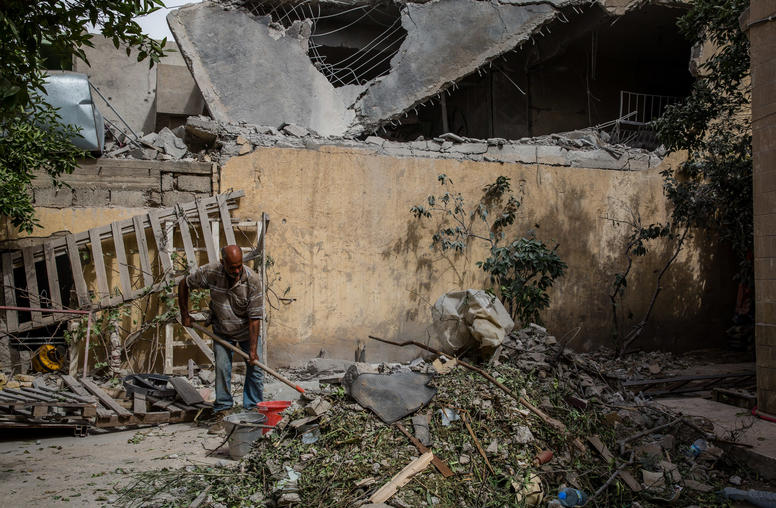
To Shut Iraq’s Door on ISIS, Use Local Peace Accords
As U.S.-backed Iraqi troops retake the last strongholds of the Islamic State in Iraq, the government in Baghdad and its international supporters must be ready to prevent a new round of conflicts in the country from turning violent, analysts said in a June 27 forum at the Heritage Foundation.
Analysts Laud U.S. Commitment to Asia
The Obama administration’s reaffirmation of American engagement in the Asia-Pacific region for strategic and economic reasons is welcome, but describing it as a “pivot” toward the region in the wake of U.S.-led wars in Iraq and Afghanistan neglects the continuity through decades of U.S. involvement in the region, three senior foreign policy figures from the United States, Japan and South Korea said at a forum sponsored by the United States Institute of Peace (USIP) on December 15.
State's Tauscher Headlines USIP's Academy Course on Nuclear Non-Proliferation and Arms Control
The Institute’s Academy for International Conflict Management and Peacebuilding held the course in nuclear nonproliferation Sept. 26-30. And, for the first time ever, an undersecretary of state, Ellen Tauscher, spoke to an Academy class. Tauscher is the undersecretary of state for Arms Control and International Security Affairs.
Iran, Nuclear Weapons, and the IAEA
This week, the International Atomic Energy Agency (IAEA) is scheduled to release a report on the status of Iran’s nuclear weapons program. USIP’s Dan Brumberg discusses the possible impact of the report.
U.S.-North Korea Agreement: A Breakthrough?
John Park, a senior program officer who directs USIP’s Korea Working Group, analyzes the U.S.-North Korea agreement announced on February 29. The North Koreans will suspend nuclear activities at its Yongbyon complex and long-range missile tests, and the U.S. will provide 240,000 tons of nutritional assistance to North Korea. While it may not be a breakthrough, this agreement does constitute a modest initial step forward in dealing with North Korea.
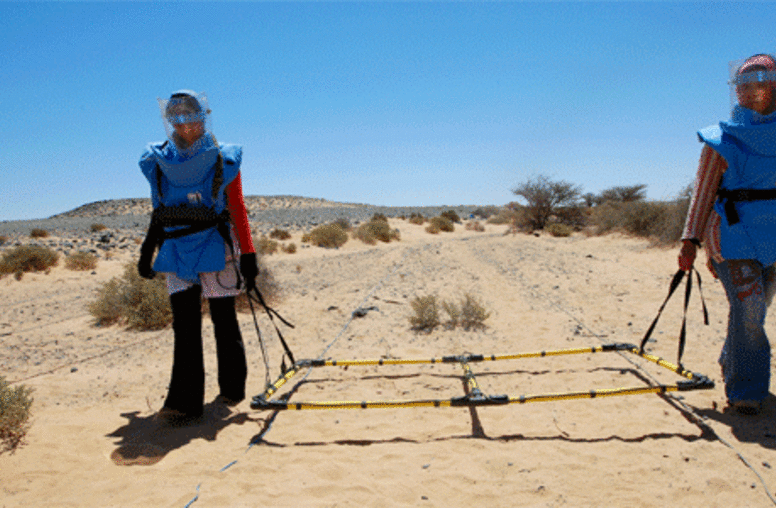
Landmine Awareness Day: Resources and Activities for Students and Educators
April 4, 2012 is the International Day for Landmine Awareness. The day is sponsored by the United Nations and has been observed every year since 2006. USIP's Global Peacebuilding Center is marking Landmine Awareness Day by highlighting resources and activities.
Examining the Prospects for Iran Nuclear Talks
Talks between Iran and a group known as the P5 plus 1 (the five United Nations Security Council permanent members plus Germany) on Iran’s nuclear programs are expected to begin on April 14 in Istanbul, Turkey. The resumption of negotiations might represent an important juncture in the long saga of international efforts to restrain and verify the nature of Iran’s nuclear efforts, which Tehran contends is intended to develop energy sources and conduct research but which the United States and ot...
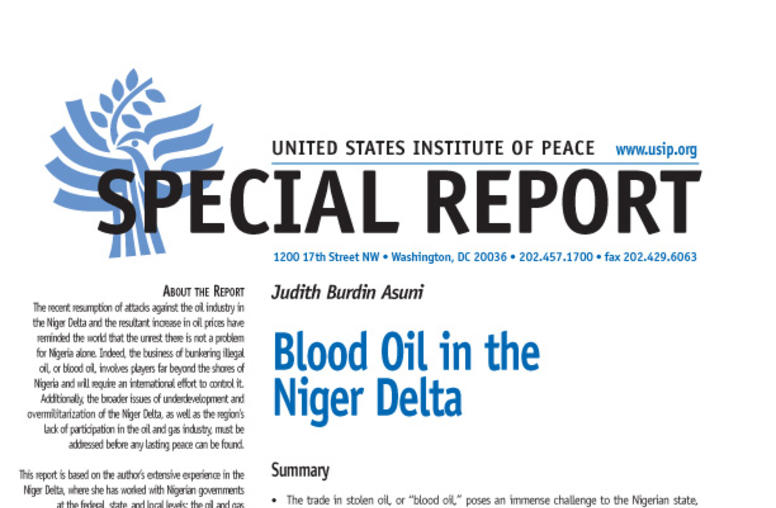
Blood Oil in the Niger Delta
The trade of stolen oil, or “blood oil,” in Nigeria is fueling a long-running insurgency in the resource-rich Niger Delta region that has claimed many lives. Oil “bunkering” – or theft – has fomented the armed conflict in the region, providing militant groups with funds to purchase weapons, and has increased instability in oil prices on world energy markets. Nigerian President Umaru Yar’Adua in July 2008 asked the Group of Eight nations for help in dealing with the problem, but no concrete ac...
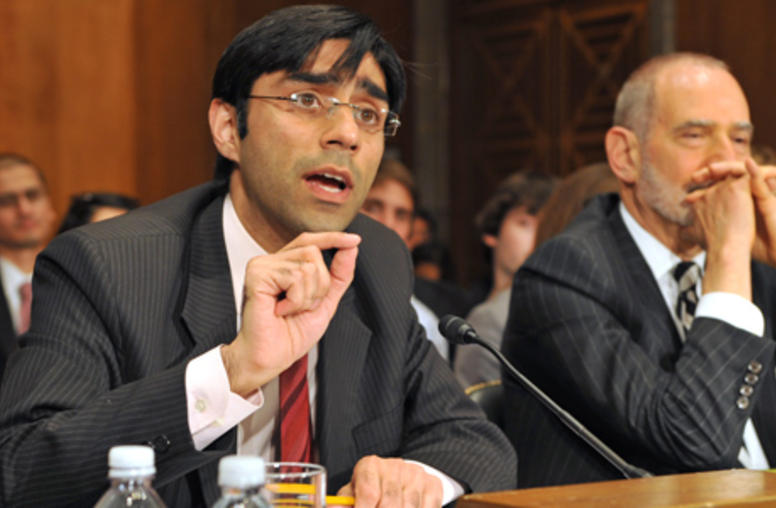
Assessing U.S. Policy and Its Limits in Pakistan
USIP South Asia Adviser, Moeed Yusuf, testifies before the Senate Foreign Relations Committee on U.S.-Pakistan Relations.